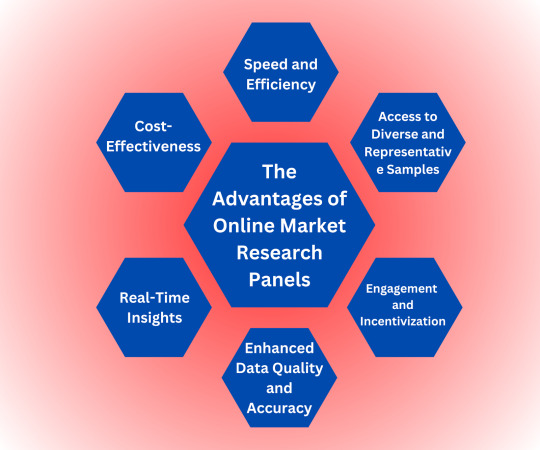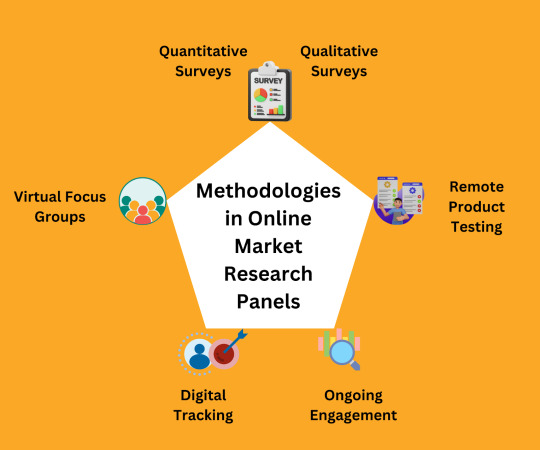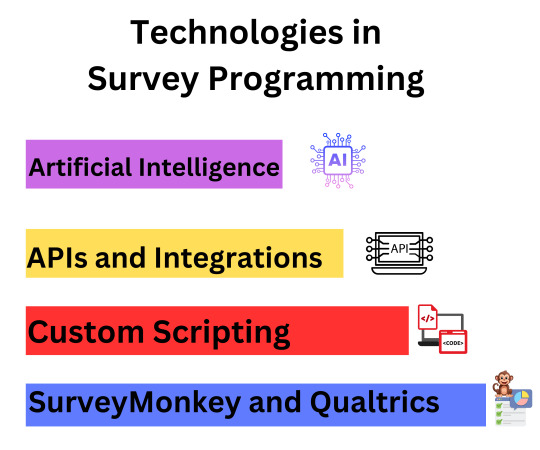#CustomMarketResearch
Text
In the ever-evolving healthcare industry, staying informed about market trends, consumer behaviors, and emerging technologies is crucial. Healthcare market research companies play a vital role in providing the necessary insights that drive strategic decision-making, product development, and marketing strategies. This article explores the functions, methodologies, and impact of healthcare market research companies on the industry.
#marketresearch#primarymarketresearch#custommarketresearch#marketresearchservices#endtoendmarketresearch#robasresearch
0 notes
Text
The digital transformation of healthcare is underway, and MedTech companies are expected to play a key role.
#CustomMarketResearch#MedicalMarketResearch#custommarketresearchservices#custommarketresearchfirms#Custom Market Research#Medical Market Research#custom market research services
0 notes
Link

#marketresearch #custommarketresearch #reanin #marketresearchreports
0 notes
Text
The Future of Research: Why Online Market Research Panels Are the Way Forward
Introduction
In today's fast-paced digital era, the market research landscape is undergoing a seismic shift. Traditional research methods, although still valuable, are being increasingly augmented or even supplanted by online market research panels. These innovative panels embody a forward-thinking approach to data collection, offering a multitude of advantages over conventional techniques. This essay delves into the reasons why Online Market Research Panels are poised to revolutionize the research industry, examining their benefits, methodologies, technological advancements, and their pivotal role in shaping the future of market research.
Understanding Online Market Research Panels
Online market research panels are carefully curated groups of pre-recruited respondents who have opted-in to participate in a variety of research studies over an extended period. These panels are deliberately designed to be diverse, comprising individuals from different demographics, geographies, and consumer segments. By engaging in various online research activities, such as surveys, product testing, focus groups, and more, panel members provide rich, valuable feedback and insights that help shape business strategies and inform critical decisions.
The Advantages of Online Market Research Panels

Speed and Efficiency:
Rapid Data Collection: One of the most significant advantages of online market research panels is the speed at which data can be collected. Traditional methods often involve lengthy processes of recruiting participants, scheduling interviews, and manually collecting data. In contrast, online panels can deliver responses in a fraction of the time, often within hours or days.
Automated Processes: Automation tools and advanced software solutions streamline the entire research process, from survey distribution to data analysis, further enhancing efficiency.
Cost-Effectiveness:
Reduced Operational Costs:Online market research panels offer a significant cost advantage over traditional research methods.
Scalability: With online panels, researchers can adapt quickly to changing project requirements, without being hindered by logistical or financial constraints.
Access to Diverse and Representative Samples:
Global Reach: Online panels can include participants from various countries, cultures, and socioeconomic backgrounds, providing a comprehensive view of global market trends.
Targeted Recruitment: Researchers can specify demographic criteria such as age, gender, income level, education, occupation, and geographic location. This ensures that the panel reflects the characteristics of the target population they want to study.
Real-Time Insights:
Instant Feedback: Businesses can receive feedback from participants almost instantly, allowing them to quickly assess the effectiveness of new products, services, or marketing campaigns.
Trend Analysis: By maintaining ongoing relationships with panel members, researchers can track changes in attitudes, behaviors, and preferences over time. This longitudinal data provides deeper insights into consumer trends and allows for the identification of emerging patterns.
Enhanced Data Quality and Accuracy:
Consistency and Reliability: Panel members are typically pre-screened based on specific demographic, behavioral, or psychographic criteria relevant to the research objectives. This ensures that participants have the characteristics needed to provide valuable insights.
Advanced Validation Techniques: Platforms monitor the time taken to complete surveys. Responses submitted too quickly or too slowly compared to average completion times may indicate careless responses or fraudulent behavior.
Engagement and Incentivization:
Incentive Programs: Online panels often include incentive programs that reward participants for their time and input, increasing engagement and response rates.
Interactive Elements: Including images, videos, or audio clips can make surveys more visually appealing and interactive. This can help clarify questions, illustrate concepts, or evoke emotional responses from participants, leading to more nuanced and insightful feedback.
Methodologies in Online Market Research Panels

Surveys:
Quantitative Surveys: By using structured surveys, researchers can collect valuable quantitative data from online panel members, providing insights that inform business decisions and drive strategy.
Qualitative Surveys: Open-ended surveys offer a unique opportunity for panel members to share their thoughts, feelings, and opinions in their own words, providing rich, qualitative insights into consumer attitudes and motivations.
Focus Groups:
Virtual Focus Groups: Online focus groups have revolutionized the way researchers gather qualitative insights, offering a convenient and flexible alternative to traditional in-person focus groups. By leveraging video conferencing platforms, researchers can conduct moderated discussions that replicate the dynamics of traditional focus groups, while providing numerous advantages.
Product Testing:
Remote Product Testing: Product testing studies have become more accessible and convenient than ever, thanks to online market research panels. With the ability to participate from home, panel members can provide valuable feedback on products and services without having to leave their comfort zone.
Behavioral Tracking:
Digital Tracking:Online panels have taken market research to the next level by incorporating behavioral tracking tools. These tools enable researchers to monitor panel members' online activities, providing a unique window into actual consumer behavior. By capturing digital footprints, researchers can gain a deeper understanding of how consumers interact with websites, apps, and online services.
Longitudinal Studies:
Ongoing Engagement: Online panels are the perfect vehicle for longitudinal studies, where researchers seek to understand how consumer behavior and attitudes evolve over time. By maintaining a continuous connection with panel members, researchers can collect a rich stream of data that reveals valuable insights into trends and patterns.
Technological Advancements Driving Online Market Research Panels

Big Data and Analytics:
Data Integration: Advanced analytics platforms integrate data from multiple sources, including survey responses, behavioral data, and social media interactions, providing a holistic view of consumer behavior.
Predictive Analytics: ncover hidden relationships and trends in consumer behavior, preferences, and purchasing habits
Artificial Intelligence (AI):
Automated Survey Design: AI-powered tools can revolutionize the survey design process by automatically creating surveys tailored to specific research objectives and respondent profiles. These tools can optimize question flow, reduce survey fatigue, and improve overall survey effectiveness.
Sentiment Analysis: Natural Language Processing (NLP) algorithms are revolutionizing the way we analyze open-ended responses, enabling businesses to uncover hidden insights, gauge sentiment, and identify common themes.
Mobile Technology:
Mobile-Friendly Surveys:The widespread adoption of smartphones has revolutionized the way we conduct surveys, making mobile-friendly surveys an essential tool for researchers. By leveraging mobile technology, researchers can increase response rates, enhance engagement, and reach respondents anytime, anywhere.
Location-Based Insights: GPS-enabled surveys provide location-specific data, offering valuable context for consumer behavior and preferences.
Blockchain for Data Security:
Secure Data Transactions: Blockchain technology is revolutionizing the way data is stored, shared, and protected, ensuring the integrity and privacy of panel members' data in the market research industry.
Decentralized Data Storage: Decentralized storage solutions are revolutionizing the way data is stored, providing a secure and resilient alternative to traditional centralized storage systems.
The Role of Online Market Research Panels in Shaping the Future

Agility in a Rapidly Changing Market:
Responsive Research: Online panels enable researchers to quickly adapt to market changes and emerging trends, ensuring that businesses remain competitive and relevant.
Real-Time Decision-Making: In today's fast-paced business environment, the ability to gather and analyze data in real-time is crucial for making swift and informed decisions.
Consumer-Centric Approaches:
Enhanced Personalization: Online panels are a powerful tool for businesses looking to gain a deeper understanding of individual consumer preferences.
Customer Feedback Loops: Continuous engagement with panel members is a crucial aspect of online panel research, enabling businesses to create a feedback loop that drives iteration and improvement.
Global Research Capabilities:
Cross-Cultural Insights: Online panels have revolutionized the way businesses approach cross-cultural research, providing access to diverse populations across different regions and cultures.
Localized Research: Conducting localized studies is a crucial aspect of consumer research, enabling researchers to gain a deeper understanding of regional variations in consumer behavior.
Sustainability and Ethical Research:
Reduced Environmental Impact: The shift towards online panels in market research has not only improved the efficiency and accuracy of data collection but also contributed significantly to reducing the environmental footprint of research activities.
Ethical Data Practices: Adhering to ethical standards and data protection regulations ensures the responsible collection and use of consumer data.
Conclusion
In conclusion, Online Market Research Panels have revolutionized the research landscape, offering a powerful tool for researchers and businesses to gain a deeper understanding of their target audience. With their unparalleled speed, efficiency, cost-effectiveness, and ability to provide real-time, high-quality data, online panels have become an indispensable asset for informed decision-making. As technology continues to advance, online panels will remain at the forefront of market research, driving innovation and shaping strategies that propel businesses forward. By embracing this digital transformation, researchers and businesses can unlock the full potential of online market research panels, stay ahead of the competition, and achieve sustained success in an ever-evolving market landscape.
#marketresearch#robasresearch#primarymarketresearch#custommarketresearch#endtoendmarketresearch#marketresearchservices
0 notes
Text
In an increasingly data-driven world, market research panels play a vital role in shaping business strategies, product development, and marketing campaigns. Joining a market research panel offers individuals a unique opportunity to voice their opinions, influence major decisions, and even earn rewards. This article explores the benefits, process, and impact of participating in market research panels.
#primarymarketresearch#robasresearch#custommarketresearch#marketresearch#endtoendmarketresearch#marketresearchservices
0 notes
Text

In today's rapidly evolving healthcare landscape, market research is pivotal in understanding patient needs, tracking industry trends, and making informed business decisions. However, managing healthcare market research panels can be a complex and time-consuming process. With the advent of advanced technologies, panel management has become more efficient, accurate, and insightful. This article explores how technology is revolutionizing Healthcare Market Research Panel Management, highlighting key tools and best practices for leveraging these innovations.
#marketresearchservices#primarymarketresearch#custommarketresearch#marketresearch#endtoendmarketresearch#robasresearch
0 notes
Text
Leveraging Technology for Efficient Healthcare Market Research Panel Management
Introduction
In today's rapidly evolving healthcare landscape, market research is pivotal in understanding patient needs, tracking industry trends, and making informed business decisions. However, managing healthcare market research panels can be a complex and time-consuming process. With the advent of advanced technologies, panel management has become more efficient, accurate, and insightful. This article explores how technology is revolutionizing Healthcare Market Research Panel Management, highlighting key tools and best practices for leveraging these innovations.
The Role of Technology in Healthcare Market Research
1. Data Collection and Integration
Technological advancements have streamlined data collection processes, making it easier to gather comprehensive and accurate information from diverse sources. Digital surveys, mobile applications, and online forums enable researchers to reach a broader audience and collect real-time data. Integration platforms allow for the seamless merging of data from various sources, ensuring a holistic view of the market landscape.
Example: Using AI-powered chatbots for survey distribution can increase response rates and improve the accuracy of data by engaging participants in interactive and user-friendly ways.
2. Enhancing Data Quality and Accuracy
AI and machine learning algorithms play a crucial role in enhancing data quality. These technologies can identify patterns, detect anomalies, and eliminate duplicates, ensuring the reliability of the data collected. Natural Language Processing (NLP) techniques help analyze open-ended responses, providing deeper insights into patient sentiments and preferences.
Example: Machine learning algorithms can filter out inconsistent or irrelevant responses, providing researchers with cleaner datasets for analysis.
3. Automation of Administrative Tasks
Administrative tasks such as scheduling, follow-ups, and data entry can be automated using advanced software solutions. Automation reduces the burden on researchers, allowing them to focus on more strategic aspects of panel management. Automated reminders and notifications ensure timely participation and improve overall panel engagement.
Example: An automated email system can send reminders to panelists about upcoming surveys or interviews, reducing the likelihood of missed appointments and improving participation rates.
4. Enhancing Participant Engagement
Technology offers various ways to enhance participant engagement, a critical factor in the success of market research panels. Gamification techniques, interactive surveys, and personalized communication can significantly improve participant retention and satisfaction. Mobile-friendly platforms ensure that participants can engage with research activities conveniently, leading to higher response rates.
Example: Implementing gamified surveys where participants earn points or rewards for completing tasks can increase engagement and participation.
5. Advanced Data Analytics and Visualization
Big data analytics and visualization tools enable researchers to analyze vast amounts of data quickly and effectively. Advanced analytics can uncover hidden trends, correlations, and insights that might be missed with traditional analysis methods. Visualization tools present data in an easily understandable format, facilitating better decision-making.
Example: Interactive dashboards allow researchers to visualize data trends and patterns, making it easier to identify key insights and communicate findings to stakeholders.
6. Ensuring Compliance and Data Security
Compliance with regulatory standards and ensuring data security are paramount in healthcare research. Technologies such as blockchain and advanced encryption methods provide robust solutions for data security. Compliance management software helps researchers stay up-to-date with regulatory requirements, ensuring that all data collection and management processes adhere to relevant guidelines.
Example: Blockchain technology can be used to create secure and tamper-proof records of data transactions, ensuring the integrity and confidentiality of sensitive information.
Best Practices for Leveraging Technology in Panel Management
Choose the Right Tools: Select technology solutions that align with your research objectives and panel management needs. Consider factors such as ease of use, integration capabilities, and scalability.
Ensure Data Quality: Implement AI and machine learning algorithms to enhance data quality and accuracy. Regularly monitor and validate data to maintain its integrity.
Automate Routine Tasks: Use automation to handle administrative tasks, freeing up researchers to focus on strategic activities. Automated systems can improve efficiency and reduce human error.
Engage Participants: Leverage gamification, personalized communication, and mobile-friendly platforms to enhance participant engagement. Regularly update and interact with panelists to maintain their interest and commitment.
Maintain Compliance: Stay informed about regulatory requirements and ensure that all data collection and management processes comply with relevant standards. Use advanced security measures to protect sensitive information.
Utilize Advanced Analytics: Employ big data analytics and visualization tools to uncover valuable insights from your data. Interactive dashboards and reports can facilitate better decision-making and communication.
Conclusion
The integration of technology in Healthcare Market Research Panel Management has transformed the way researchers collect, analyze, and utilize data. By leveraging advanced tools and techniques, healthcare organizations can achieve greater efficiency, accuracy, and participant engagement in their research efforts. As technology continues to evolve, staying abreast of the latest innovations and best practices will be crucial for maintaining a competitive edge in the healthcare market research landscape.
#marketresearchservices#marketresearch#primarymarketresearch#custommarketresearch#robasresearch#endtoendmarketresearch
0 notes
Text

Market research is the cornerstone of informed business decisions, providing insights into consumer behavior, preferences, and trends. A fundamental tool in this field is the survey, a method that enables the systematic collection of data from a target audience. The journey from drafting a questionnaire to deriving actionable insights involves several critical steps, one of which is survey programming. This process, often overlooked, is crucial for ensuring the reliability, accuracy, and efficiency of data collection. This essay delves into the significance of Survey Programming in Market Research, examining its role, methodologies, technologies, and the benefits it brings to the research process.
#custommarketresearch#robasresearch#marketresearch#primarymarketresearch#endtoendmarketresearch#marketresearchservices
0 notes
Text
From Questionnaire to Insights: The Power of Survey Programming in Market Research
Introduction
Market research is the cornerstone of informed business decisions, providing insights into consumer behavior, preferences, and trends. A fundamental tool in this field is the survey, a method that enables the systematic collection of data from a target audience. The journey from drafting a questionnaire to deriving actionable insights involves several critical steps, one of which is survey programming. This process, often overlooked, is crucial for ensuring the reliability, accuracy, and efficiency of data collection. This essay delves into the significance of Survey Programming in Market Research, examining its role, methodologies, technologies, and the benefits it brings to the research process.
The Role of Survey Programming

Survey programming refers to the process of converting a questionnaire into a digital format that can be administered online or through electronic devices. It involves scripting the survey using specialized software to ensure that questions are presented correctly, logical paths are followed, and data is collected efficiently. The role of survey programming in market research can be broken down into several key areas:
Data Integrity and Accuracy: One of the primary roles of survey programming is to ensure data integrity and accuracy. Properly programmed surveys incorporate various checks and validations to prevent respondents from providing inconsistent or illogical answers. For instance, if a respondent indicates that they do not own a car, subsequent questions about car features should be automatically skipped.
User Experience: A well-programmed survey significantly enhances the user experience, which is crucial for maintaining respondent engagement and reducing drop-off rates. Survey programming allows for the implementation of various features that make the survey more interactive and respondent-friendly.
Efficiency and Speed: Automated survey programming drastically reduces the time and effort required to deploy surveys and collect data. Traditional paper-based surveys or manually coded online surveys are time-consuming and prone to errors.
Complex Question Types: Market research often requires the collection of detailed and nuanced data that cannot be captured through simple question formats. Survey programming facilitates the inclusion of complex question types that provide deeper insights into respondent preferences and behaviors.
Methodologies in Survey Programming

The methodologies employed in survey programming are diverse and depend on the complexity and goals of the research. Here are some common approaches:
Logic and Branching: Creates complex survey paths where respondents are directed to different sections of the survey based on their responses. This is useful in multifaceted surveys where different groups need to be asked different sets of questions.
Randomization and Rotation: To avoid bias and order effects, survey programmers often randomize the order of questions or answer choices. This methodology is particularly useful in preventing the tendency of respondents to select options based on their position.
Validation and Quality Checks: Implementing validation checks ensures that responses are within expected parameters. For example, a date of birth field might include a range check to ensure respondents are within a target age group.
Data Piping: Data piping involves using previously collected data to personalize subsequent questions. For example, a respondent's answer to a brand preference question might be piped into a follow-up question about that specific brand.
Mobile Optimization:With the increasing use of smartphones and tablets, ensuring that surveys are mobile-friendly is essential. Mobile optimization involves designing surveys that are responsive and easy to navigate on smaller screens.
Technologies in Survey Programming

The advancement of technology has significantly impacted survey programming, making it more accessible and powerful. Several tools and platforms are available, each offering unique features:
SurveyMonkey and Qualtrics: SurveyMonkey and Qualtrics are two of the most popular survey platforms used in market research today. Both offer a range of features that cater to different needs, from basic surveys to complex research projects. Here's an in-depth look at each platform, highlighting their key features, strengths, and ideal use cases.
Custom Scripting: For more complex surveys, custom scripting languages such as JavaScript or Python may be used. This allows for greater flexibility and the implementation of advanced features not available in standard survey tools.
APIs and Integrations: APIs (Application Programming Interfaces) and integrations play a critical role in modern survey programming, enabling seamless data flow between survey platforms and other software systems.
Artificial Intelligence: AI is increasingly being used in survey programming to optimize question wording, predict respondent behavior, and even automate some aspects of survey design and analysis.
Benefits of Survey Programming

Survey programming plays a pivotal role in transforming raw questionnaire data into actionable insights. It involves scripting the survey using specialized software to ensure questions are presented correctly, logical paths are followed, and data is collected efficiently. Here are the key benefits of survey programming in market research:
Customization and Flexibility: Customization and flexibility are crucial aspects of survey programming, enabling researchers to tailor surveys to specific needs, objectives, and respondent demographics.
Scalability: Scalability is a critical aspect of survey programming that refers to the ability to handle an increasing workload or to accommodate growth in survey size, complexity, and respondent numbers without compromising performance or functionality.
Real-Time Data Collection and Analysis: Real-time data collection and analysis are critical capabilities in survey programming, enabling researchers to gather and analyze data as it is collected.
Cost-Effectiveness: Cost-effectiveness is a critical consideration in survey programming, as it impacts the overall budget of market research projects while ensuring that data collection and analysis processes remain efficient and reliable.
Enhanced Data Quality: By incorporating validation checks and logical paths, survey programming ensures that the data collected is of high quality and relevance.
Challenges and Solutions in Survey Programming

Survey programming involves several challenges that can impact the efficiency, accuracy, and overall success of market research projects. This section explores common challenges faced in survey programming and provides solutions to mitigate these challenges effectively.
Technical Complexity: Technical complexity in survey programming refers to the challenges associated with designing, implementing, and managing surveys that require advanced features, complex logic, and integration with various systems.
Respondent Engagement: Respondent engagement is crucial in survey programming as it directly impacts the quality and quantity of responses gathered, influencing the overall success of market research initiatives.
Data Privacy and Security: Data privacy and security are paramount in survey programming to ensure the confidentiality, integrity, and availability of respondent data.
Survey Fatigue:Survey fatigue is a common challenge in survey programming that occurs when respondents become disinterested or overwhelmed by frequent survey requests.
Bias and Accuracy: Bias and accuracy are critical considerations in survey programming as they directly impact the reliability and validity of survey data.
Real-World Applications

To illustrate the power of survey programming, consider the following real-world examples:
Product Development: A technology company used an advanced conjoint analysis survey to determine which features of a new smartphone were most important to consumers. By programming the survey to present different feature combinations and using data piping to personalize questions, the company gained valuable insights that guided product development.
Customer Satisfaction: Survey programming is integral to measuring and improving customer satisfaction across various industries. This section explores how survey programming is applied in real-world scenarios to enhance customer satisfaction and drive business success.
Political Polling: Survey programming is crucial in political polling as it provides insights into public opinion, voting behaviors, and political preferences. This section explores how survey programming is applied in real-world scenarios to conduct political polling and its impact on decision-making and electoral strategies.
Future Trends in Survey Programming

As technology continues to evolve, so too will the capabilities and applications of survey programming in market research. Here are some emerging trends:
AI and Machine Learning: Artificial Intelligence (AI) and Machine Learning (ML) are revolutionizing survey programming by automating processes, enhancing data analysis, and improving respondent engagement. This section explores the impact of AI and ML on survey programming and their future implications.
Voice and Video Surveys: Voice and video surveys represent an innovative approach to data collection that leverages multimedia capabilities to improve respondent engagement and survey effectiveness.
Blockchain for Data Security: Blockchain technology is increasingly being explored as a solution to enhance data security in survey programming and other fields.
Gamification: Incorporating game-like elements into surveys can boost engagement and make the survey experience more enjoyable for respondents.
Integration with IoT Devices: The integration of Internet of Things (IoT) devices in survey programming has the potential to revolutionize data collection by providing real-time, context-aware information.
Conclusion
Survey programming stands as a pivotal element in contemporary market research, elevating conventional questionnaires into robust instruments for data gathering and analysis. Through the application of sophisticated methodologies, cutting-edge technologies, and best practices, researchers can procure precise, high-quality data that empowers informed business decisions. Despite encountering challenges, the advantages of survey programming significantly outweigh any drawbacks, providing unmatched customization, efficiency, and the generation of valuable insights. As this domain continues to progress, remaining current with emerging trends and innovations will be crucial for researchers aiming to fully utilize the potential of Survey Programming in Market Research.
#primarymarketresearch#marketresearch#marketresearchservices#custommarketresearch#robasresearch#endtoendmarketresearch
0 notes
Text
AnkitDhanuka, Our Co-founder & Director electrified the audience at International Institute of Business Studies (IIBS) Bangalore with his insights, entrepreneurship journey of market research.
Thank you IIBS for inviting us to witness the spark of ambition and curiosity among your students. Special shout out to Dr. Tripuraneni Jaggaiah and Dr. Madhusudhan. Our aspiration is the impact on the market research.
Reach out to RobasResearch and let your journey begins!
#marketresearchservices#custommarketresearch#primarymarketresearch#robasresearch#endtoendmarketresearch#marketresearch
0 notes
Text

Survey programming relies on a range of technologies to convert traditional questionnaires into interactive, efficient, and user-friendly digital formats. These technologies streamline the survey creation process, enhance data collection accuracy, and improve respondent experience. Here, we explore some of the key technologies used in survey programming:
#marketresearchservices#primarymarketresearch#custommarketresearch#robasresearch#marketresearch#endtoendmarketresearch
0 notes
Text

Enhancing Product Development with Online Market Research Panels
#primarymarketresearch#robasresearch#custommarketresearch#marketresearch#endtoendmarketresearch#marketresearchservices
0 notes
Text
In today’s data-driven world, the ability to collect data efficiently and accurately is crucial for businesses, researchers, and organizations. While online data collection methods are highly effective in urban and connected areas, there are numerous scenarios where offline data collection becomes indispensable.
#primarymarketresearch#robasresearch#custommarketresearch#marketresearchservices#endtoendmarketresearch#marketresearch
0 notes
Text
Enhancing Product Development with Online Market Research Panels

In today's fast-paced and highly competitive business environment, product development is more critical than ever. Companies constantly strive to create products that meet consumer needs, stand out in the market, and drive growth. One of the most effective tools for achieving these goals is online market research panels. These panels provide valuable insights into consumer preferences, behaviors, and trends, enabling businesses to make informed decisions throughout the product development process. This article delves into how Online Market Research Panels enhance product development, their methodologies, benefits, challenges, and future trends.
The Role of Online Market Research Panels in Product Development
In today's fast-paced and highly competitive business environment, product development is more critical than ever. Companies constantly strive to create products that meet consumer needs, stand out in the market, and drive growth. One of the most effective tools for achieving these goals is online market research panels. These panels provide valuable insights into consumer preferences, behaviors, and trends, enabling businesses to make informed decisions throughout the product development process. This article delves into how online market research panels enhance product development, their methodologies, benefits, challenges, and future trends.
Stages of Product Development Enhanced by Online Market Research Panels
Ideation and Concept Testing: During the early stages of product development, companies generate ideas and test concepts. Online panels help validate these ideas by providing feedback on initial concepts, gauging consumer interest, and identifying potential improvements.
Design and Development: Once a concept is validated, the design and development phase begins. Online panels can provide insights into design preferences, usability features, and desired functionalities, ensuring the product aligns with consumer expectations.
Prototyping and Testing:Prototyping and testing are crucial steps in the product development process, ensuring that the final product meets the desired standards and fulfills customer needs. Online panels, which consist of selected groups of participants, offer an efficient platform for this testing phase. Here's how the process works and its benefits.
Launch Preparation: Absolutely, conducting pre-launch surveys using online panels can provide valuable insights that help fine-tune marketing strategies and identify potential market challenges before a product launch. Here’s a detailed breakdown of how this process works and the benefits it offers:
Post-Launch Analysis: After the product launch, online panels continue to be valuable by collecting feedback on the product's performance in the market, customer satisfaction, and areas for improvement.
Methodologies Used in Online Market Research Panels for Product Development
Surveys:Surveys are indeed a versatile and powerful tool in the product development process. They can gather quantitative data on consumer preferences, opinions, and behaviors at various stages. Here’s a closer look at how surveys can be effectively utilized throughout the different stages of product development:
Focus Groups:Virtual focus groups are a valuable method for gaining deep, qualitative insights into consumer perceptions, motivations, and suggestions for product improvements. Here’s a comprehensive look at how virtual focus groups are conducted, their benefits, and best practices:
Product Testing: Companies can send physical or digital prototypes to panelists for hands-on testing. Feedback from these tests helps identify strengths and weaknesses, guiding further refinements.
Diary Studies: Panelists maintain a diary of their experiences with a product over a specific period. This method captures detailed, longitudinal data on product usage, satisfaction, and any issues encountered.
A/B Testing: By presenting panelists with different versions of a product or marketing material, A/B testing helps determine which option performs better in terms of consumer preference and engagement.
Benefits of Using Online Market Research Panels in Product Development
Cost-Effectiveness: Online panels are more cost-effective than traditional research methods. They eliminate the need for physical venues, travel, and printed materials, reducing overall research costs.
Speed and Efficiency: Data collection through online panels is swift, allowing companies to gather insights and make decisions quickly. This speed is crucial in the fast-paced product development cycle.
Diverse and Representative Samples: Online panels can recruit participants from various demographics, ensuring a diverse and representative sample. This diversity is essential for capturing a wide range of consumer perspectives.
Real-Time Feedback: Companies can receive real-time feedback on their products, enabling them to make immediate adjustments and improvements based on consumer insights.
Flexibility: Online panels offer flexibility in research design. Companies can tailor studies to specific needs, whether they require a quick survey or an in-depth focus group.
Challenges in Using Online Market Research Panels
Maintaining Panel Quality: Ensuring a high-quality panel with engaged and reliable participants is crucial. Disengaged or uninterested panelists can lead to skewed results and unreliable data.
Data Privacy and Security: Handling sensitive data requires robust privacy and security measures. Companies must comply with data protection regulations to safeguard panelists' information.
Survey Fatigue: Frequent requests for participation can lead to survey fatigue among panelists, resulting in lower response rates and decreased data quality. Balancing the frequency of surveys is essential.
Bias and Representation: Online panels may be susceptible to biases such as self-selection bias, where individuals who choose to participate may not represent the broader population. Careful panel management and study design are necessary to mitigate these biases.
Technological Limitations: Not all potential panelists have equal access to digital tools and the internet. This digital divide can limit the diversity of the panel and affect the representativeness of the data.
Best Practices for Enhancing Product Development with Online Market Research Panels
Define Clear Objectives:Enhancing product development with online market research panels involves strategic planning, effective implementation, and continuous optimization. Here are best practices to maximize the benefits of using online market research panels in product development:
Recruit a Diverse Panel: Ensure your panel is diverse and representative of your target market. This diversity provides more accurate and generalizable insights into consumer preferences and behaviors.
Engage and Retain Panelists: Keeping panelists engaged is crucial for maintaining a high-quality panel. Regular communication, meaningful incentives, and respect for their time help retain active and engaged participants.
Ensure Data Quality: Implement measures to ensure data accuracy and reliability. This includes designing clear and unbiased surveys, using quality checks, and validating responses.
Leverage Advanced Analytics: Utilize advanced data analytics tools to analyze research findings. Techniques such as sentiment analysis, cluster analysis, and predictive modeling can uncover deeper insights and actionable recommendations.
Adhere to Ethical Standards: Maintain the highest ethical standards in your research. Protect panelists' privacy, obtain informed consent, and comply with relevant data protection regulations.
Methodology:
Surveys: The company conducted surveys to gather initial feedback on flavor preferences and packaging designs.
Product Testing: Samples of the new drinks were sent to a subset of panelists who provided detailed feedback on taste, packaging usability, and overall appeal.
Methodology:
Surveys: Initial surveys identified desired features and functionalities among target consumers.
Focus Groups: Virtual focus groups provided in-depth feedback on design prototypes.
Product Testing: Prototypes were sent to panelists for real-world testing, with feedback collected on usability and performance.
Future Trends in Online Market Research Panels for Product Development
Artificial Intelligence and Machine Learning: AI and machine learning will play a significant role in analyzing large datasets, identifying patterns, and predicting consumer preferences. These technologies will enhance the accuracy and efficiency of market research.
Mobile-First Research: As mobile device usage continues to rise, designing mobile-friendly surveys and research tools will become increasingly important. Mobile-first research ensures broader reach and higher engagement rates.
Gamification: Incorporating game-like elements into surveys can make the research experience more engaging for panelists. Gamification can increase participation rates and improve the quality of responses.
Personalization: Leveraging big data and AI, researchers can personalize survey experiences based on panelists' past behavior and preferences. Personalized surveys can lead to more relevant and insightful feedback.
Blockchain for Data Security: Blockchain technology offers a way to enhance data security and transparency. By creating immutable records of transactions, blockchain can build trust among panelists and ensure the integrity of the data collected.
Conclusion
Online Market Research Panels are a powerful tool for enhancing product development. They provide valuable insights at every stage of the product development process, from ideation and concept testing to prototyping, launch, and post-launch analysis. The benefits of online panels, such as cost-effectiveness, speed, and diverse samples, make them an attractive option for businesses seeking to develop products that resonate with consumers.
However, challenges such as maintaining panel quality, ensuring data privacy, and mitigating biases must be addressed to maximize their effectiveness. By following best practices and leveraging advanced analytics, companies can harness the full potential of online market research panels to drive successful product development.
As technology continues to evolve, the future of online market research panels looks promising. Innovations in AI, mobile technology, gamification, personalization, and blockchain are poised to enhance the capabilities and reliability of these panels. By staying ahead of these trends and continually refining methodologies, businesses can gain deeper consumer insights and develop products that meet and exceed consumer expectations, ensuring their success in an ever-competitive marketplace.
#primarymarketresearch#robasresearch#marketresearch#custommarketresearch#endtoendmarketresearch#marketresearchservices
0 notes
Text

#custommarketresearch#primarymarketresearch#robasresearch#endtoendmarketresearch#marketresearchservices#marketresearch
0 notes
Text
In the digital age, understanding consumer behavior, preferences, and trends is crucial for businesses aiming to stay competitive and relevant. Online market research panels have emerged as a powerful tool for gathering this vital information. These panels consist of pre-recruited individuals who have agreed to participate in surveys and research studies. This guide explores the benefits, structure, and applications of online market research panels, providing a comprehensive understanding of their role in modern market research.
#marketresearch#primarymarketresearch#marketresearchservices#robasresearch#custommarketresearch#endtoendmarketresearch#online research panel
0 notes